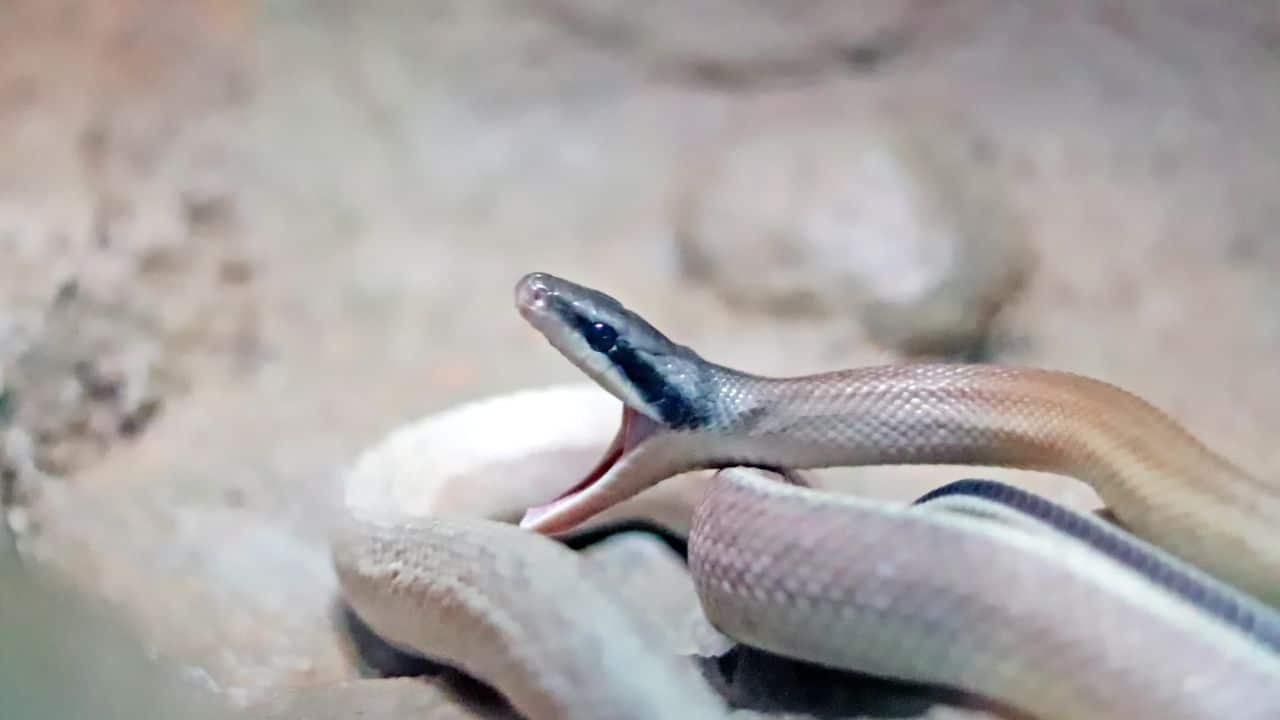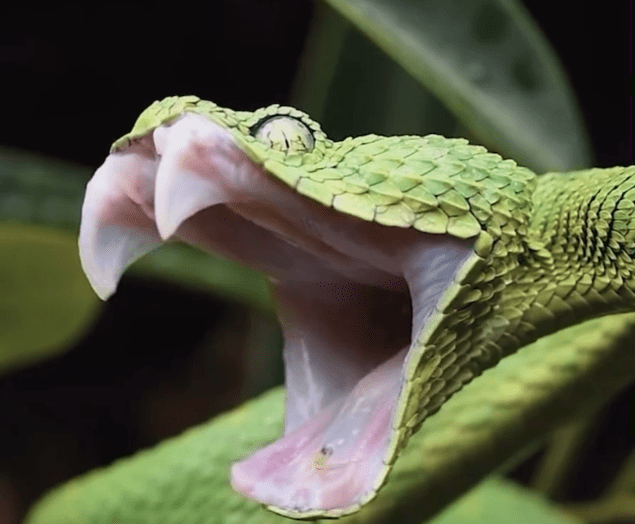Rather, their lower jaw isn't attached by bone in the first place, nor is it even in one piece—it's separated in the middle and attached by ligaments, allowing one side to move independent from the other side. As a result of an illness, you may find them yawning.
This is because they are gathering information about their surroundings through an organ known as the vomeronasal organ, sometimes called the jacobson’s organ.

Can snakes yawn. The bottom jaw of a snake is not fixed into a firm place, so that is the reason why snakes can’t widen their jaw. As humans, we have a tendency to explain an animal’s cute or wacky behaviour by anthropomorphising it. Once the meal is ingested, you will likely see the snake “yawn” again.
Or they can also yawn because they are feeling ill. Some snakes, like cottonmouths and vipers, open their mouths wide in a. Snakes also yawn when they are about to vomit, and when they are suffering from upper respiratory illnesses.
The top jaw of the snake is attached to the skull and is immovable. Excluding the need to realign their jaw after eating. According to heliyon, a snake uses the vomeronasal organ is to yawn.
Snakes yawn randomly to help smell better. Snakes also yawn when they are about to vomit, and when they are suffering from upper respiratory illnesses. Snake yawning, or mouth gaping, happens for many practical reasons.
Ever wonder why do snakes yawn? Preparing for dinner by yawning. Sometimes stress can cause it.
This is why a snake may yawn when it goes somewhere new. Above the roof of a snake’s mouth is the “jacobson’s organ” (also known as the vomeronasal organ). The most common would be before and after a meal.
Yes, reptiles can yawn although it’s probably not contagious in the same way that it is for us. A snake can open its mouth near 180. This is to allow the snake to.
This is similar to how when we have colds that produce lovely mucus and give us a stuffy nose, we tend to need to breathe more through our mouths. Pet snakes yawning can be due to: In fact, a snake ‘yawning’ has another far more plausible biological explanation.
On the other hand, their lower jaw is attached by ligaments; This can make it easier to swallow larger prey. Mouth gaping before a meal allows the snake to stretch its jaws.
Not only this, but snakes also yawn after eating meals in scenarios where they have ingested too much air, so the yawning acts as a snake’s way of burping. One of the reasons why snakes yawn is because of a disease. The snake can then find its mate, food, or whatever else it’s looking for nearby.
These bones allow the jaw to hinge at two points, instead of a single point as happens with other species. They yawn after eating to put their jaws back in place. Some snake yawn to stretch out their jaws before, after taking a meal, and after resting for a long time.
They yawn after eating to put their jaws back in place. Contrary to popular beliefs, snakes do not unhinge their jaws. Snakes will also do some gaping to.
Yawning helps snakes open their jaws incredibly—one might even say _impossibly_—wide. When snakes open mouths to yawn, it can mean many things but definitely not because they are tired. Snakes yawn randomly to help smell better.
Constant yawning or gaping jaws is a serious indicator of a respiratory infection. Alternatively, snakes may yawn when they’re hungry. Instead yawning is likely a sign of a sleepy reptile, a way to stretch, or a means of communication for specific species.
They yawn when they are picking up chemicals in the air that provide information about the environment. This is possible because rather than a simple hinge formed at the junction of the skull and lower jaw, snakes feature another set of bones in the jaw joint. Snake yawning is also called “mouth gaping” and even though it is used for meal preparation by jaw stretching and fang realignment, yawning is also a method the snake uses for detecting chemical cues from its environment.
Pet snake yawning as she stretches her jawline wide to expose her fangs. They don’t yawn as they go and hide to sleep, instead directly after eating. This behavior can occur for a number of reasons.
Snakes do not yawn because they are tied. The proper term for yawning in snakes is mouth gaping. The majority of snake “yawning” happens as a result of the following circumstances:
Nonetheless, there is no scientific proof showing that snakes ever yawn because they are tired. They yawn to widen their gape so they can swallow very large prey. Like saying a snake is yawning.
This reasons for a snake yawning are not only being tired, it is more known that the snake is actually stretching their jaw in preparation of eating a large meal or readjusting their jaw after swallowing a large meal. Snakes “yawn” or “mouth gape” for a variety of causes. In these cases, where snakes aren’t able to breathe air comfortably through their nostrils, snakes may yawn or gape their mouths in attempt to get air through their epiglottis.
Yawning to detect chemical signals. They will just randomly yawn from time to time. They yawn when they are getting ready to eat, or after eating, they are realigning their jaw.
But because we have no idea how snakes experience tiredness, we can’t assume a yawn means it’s actually tired. When the snake yawns wide, these same particles/pheromones hit the vomeronasal organ in the roof of its mouth. All snake species yawn but there is an ongoing debate as to the reason of motivation behind a snake yawning.
It can be believed that snakes use this to take cues from their environment, which includes being able to smell some prey that is nearby.

Why Do Snakes Yawn? Reptile Roommate

Yawning snake is surprisingly cute, hanging on your every

